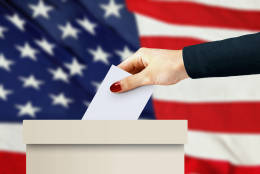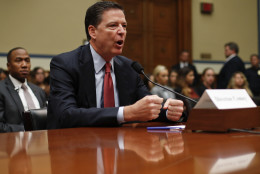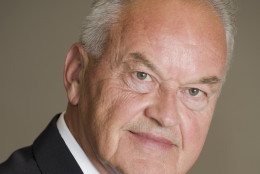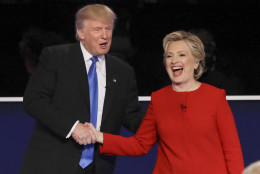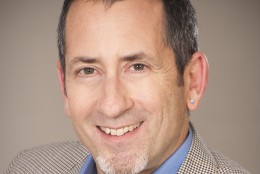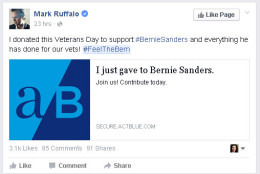Hatch Act
-
Environmental Protection Agency ethics officials are reminding employees of the ethical guidelines they must follow if they're speaking or acting in their capacity as an EPA employee. These ethics rules haven't changed in the new administration, the EPA Office of General Counsel said.
February 08, 2017 -
Election Day can be a whirlwind of campaign signs, crowded polling sites and an avalanche of social media posts. To help cut through the chaos, here's Federal News Radio's roundup of congressional races, presidential platforms and Hatch Act reminders.
November 08, 2016 -
Amid a sudden surge of interest, the Office of Personnel Management has given federal employees a refresher on what they can and cannot do under the Hatch Act.
November 03, 2016 -
In most cases, government jobs are forever, but Senior Correspondent Mike Causey says there are two easy ways to get fired, especially this time of year.
October 05, 2016 -
R. Scott Oswald, managing principal of the Employment Law Group, will discuss what you can do to avoid getting suspended, fired, or fined because of violations of the no-politics-at-the-office law. October 5, 2016
October 04, 2016 -
With only one more month left to go until the presidential election, the Office of Special Counsel wants to remind federal employees of a few Hatch Act guidelines meant to keep political activity out of the workplace.
October 04, 2016 -
Beyond the bright lines of the Hatch Act, politicking at the office is bad form.
July 13, 2016 -
More federal employees turned to the Office of Special Counsel with prohibited personnel practice or whistleblower complaints in 2015, and the agency resolved more cases than any other year in its history.
July 12, 2016 -
Hillary or Donald, my impression is that the real person in both cases lies hidden deep in a "heavily forested interior."
June 08, 2016 -
Social media makes it easier than ever to violate the Hatch Act, the law that bans feds from using their positions to influence political campaigns.
November 12, 2015 -
'Tis the season. Election season that is. And that means it's time to brush up on the Hatch Act. The 1939 law prohibits certain federal employees from engaging in some forms of political activity. But does it apply to you? In this week's Legal Loop, Debra Roth, a partner at the law firm Shaw, Bransford and Roth, joined Tom Temin on the Federal Drive with some tips for how to stay out of trouble at work during election season.
July 30, 2015 -
Under the Hatch Act, federal employees face a number of restrictions when it comes to their political activity on and off the job. The law was originally designed to protect feds from political coercion.
May 20, 2014 -
Trust is a critical factor in the relationship between federal managers and employees. Without it, whistleblowers are retaliated against; minor Hatch Act violations receive severe punishments; and unsuitable employees are given security clearances. In our special report, Trust Redefined: Reconnecting Government and Its Employees, Federal News Radio explores what a lack of trust has created in government and what it will take to restore it.
May 20, 2014 -
A customer service representative at the IRS who repeatedly greeted taxpayers calling a help-line with a chant urging President Barack Obama's re-election in 2012 could now be facing significant disciplinary action, according to the Office of Special Counsel. It's one of three cases of improper political activity at the agency recently uncovered by OSC. Meanwhile, three career officials at Customs and Border Protection are under fire by OSC for allegedly manipulating the hiring process to install job candidates favored by political leadership into career appointments.
April 09, 2014 -
House and Oversight Committee Chairman Darrell Issa is accusing the White House of violating the Hatch Act. He is demanding that the Obama administration turn over documents related to the re-opening of its Office of Political Outreach and Strategy during an election year. In this week's legal loop, Joshua Rose, senior associate at the law firm Tully Rinckey, spoke with the Federal Drive about the do's and don'ts of the Hatch Act.
March 27, 2014


